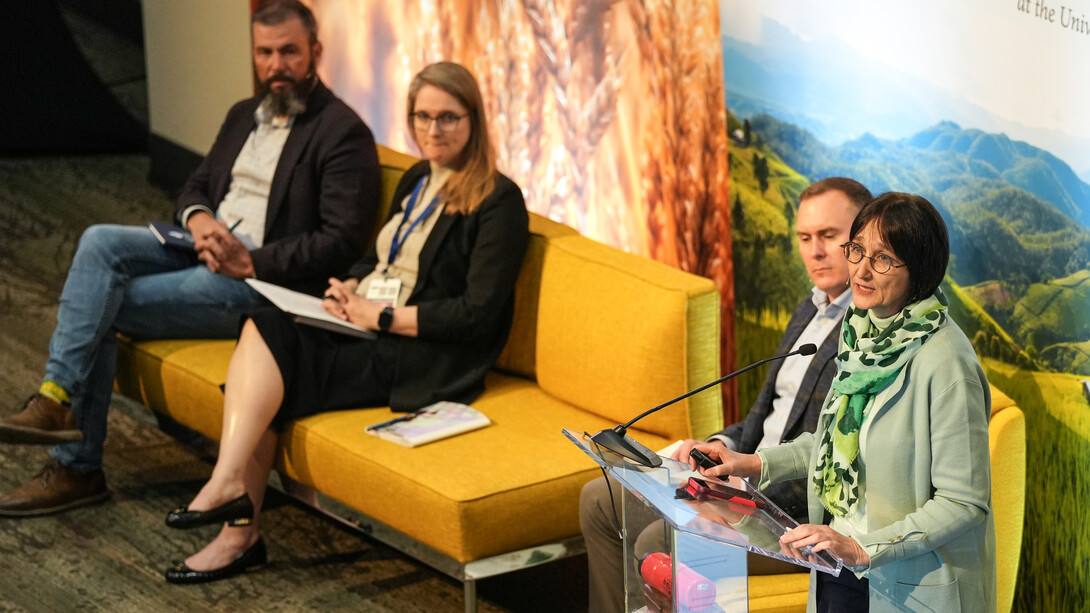
Claudia Ringler delivered the keynote speech at the Heuermann Lecture at the University of Nebraska–Lincoln on April 29, 2025, Nebraska Today reported. Ringler, Director of the Natural Resources and Resilience Unit at IFPRI, discussed the often-overlooked connection between irrigation and nutrition. “If you have water security, you are more likely to have food security,” Ringler said. “If you are water insecure, you are actually consuming fewer food groups and are more likely to be malnourished.”
The lecture took place during the weeklong 2025 Water for Food Global Conference, hosted by the Daugherty Water for Food Global Institute at the University of Nebraska. Heuermann Lectures are sponsored by the University of Nebraska–Lincoln’s Institute of Agriculture and Natural Resources and funded by a gift from the late B. Keith and Norma Heuermann.
“[Through irrigation], we are expanding the growing season. We are improving the cropping index. We are diversifying the production mix. We improve the benefits of other inputs, such as fertilizers or seed technologies,” Ringler said. “And so, water for domestic uses is also important for nutrition. To maximize the nutrition benefits from irrigation, we have to pay more attention to domestic water.”
Ringler noted that there is a direct link between research and development investment and food security, and while there has been significant progress, it has also slowed significantly. Many farmers around the world still lack access to the technologies and practices needed to use water efficiently, improve yields and support better nutrition, she said.
Ringler concluded the lecture with a challenge to all attendees: “Take one thing from this talk and apply it to your work,” she said. “Anyone working in irrigation has the power to help move the needle on nutrition.”
Read the full article here and watch the Heuermann Lecture here.



